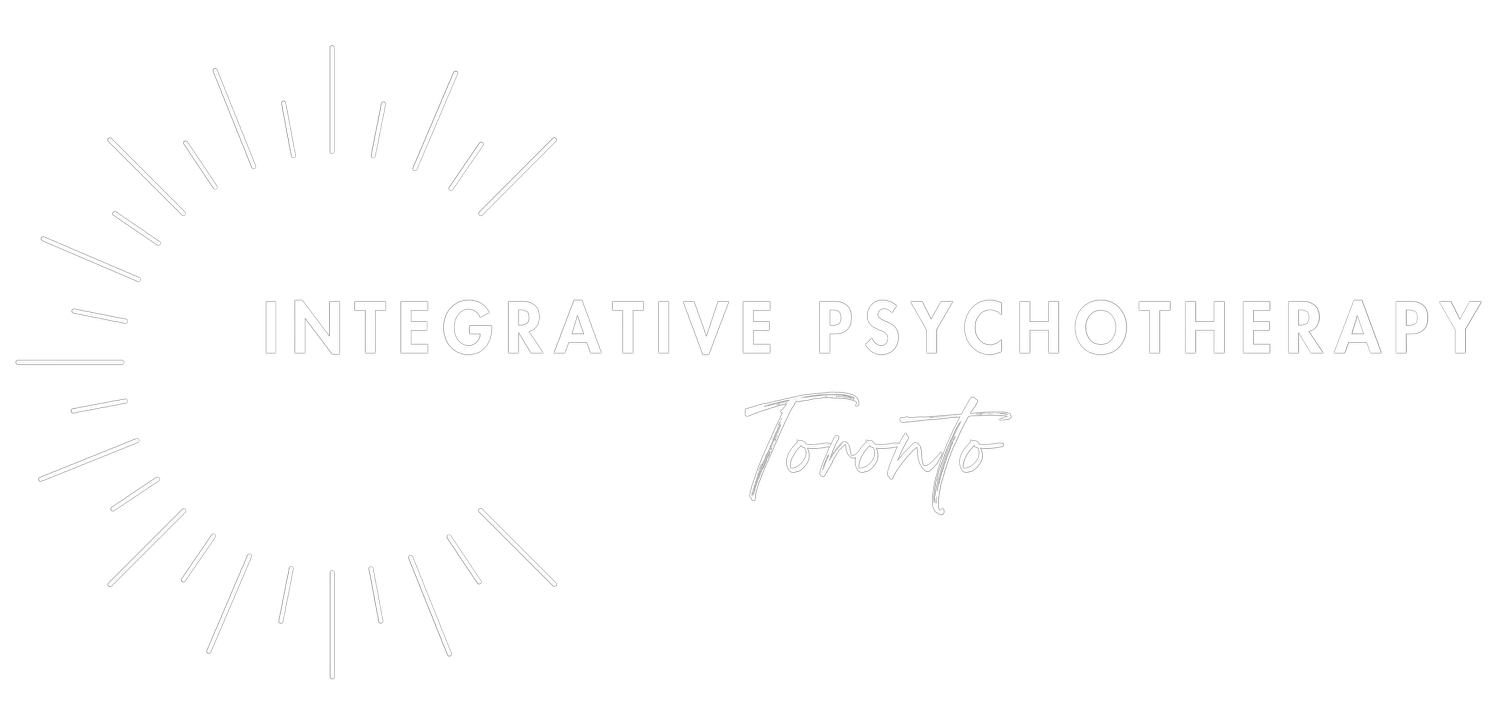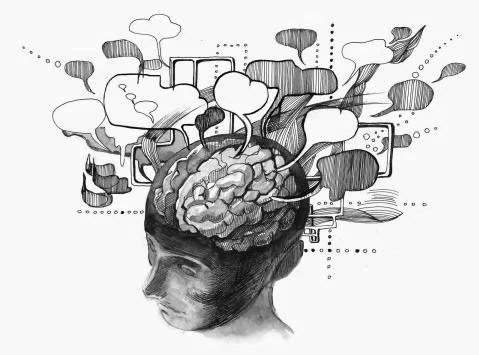“Because not all wars are fought on the battlefield”
Childhood and attachment trauma can leave lasting wounds, affecting how we relate to others, feel about ourselves, and navigate the world. While these experiences may be in the past, their impact can live on, creating patterns of fear, mistrust, or self-doubt that feel hard to shake. At Integrative Psychotherapy Toronto, we specialize in trauma treatment that focuses on helping you heal deeply rooted wounds, especially those connected to childhood and attachment trauma. Our compassionate, neuroscience-based approach works with both mind and body to help you rediscover a sense of safety and resilience.
If you've felt held back by unresolved trauma, there is hope. Trauma therapy offers a way to release the pain held within and find relief, calm, and renewed self-connection.
What is Trauma?
Trauma isn't just a difficult memory; it is a deeply embodied experience. Any threat that overwhelms our capacity to feel safe can be traumatic, especially during childhood when our emotional and physical development depends on feeling secure.
Whether due to neglect, abuse, or attachment disruptions, childhood trauma becomes stored in the nervous system, leading the brain and body to stay on high alert. This creates lasting patterns in both our mental and physical responses, affecting everything from how we manage stress to how we feel in our own skin doesn’t live as a single memory. It embeds itself in our muscles, nervous system, and emotional responses, often making it difficult to feel truly present and safe.
What Trauma Looks and Feels Like
Childhood and attachment trauma often leaves subtle yet persistent imprints that shape our emotions, thoughts, and even physical health. Many people affected by trauma may not immediately recognize their symptoms as trauma-related, especially when these symptoms manifest in ways commonly mistaken for personality traits, such as perfectionism or difficulty trusting others. Trauma, especially from childhood, affects our core sense of safety and self-worth, leading to a wide range of mental, emotional, and physical symptoms.
Common Symptoms of Trauma
Mental Symptoms: Trauma impacts how we think, often creating thought patterns that are overly critical, fearful, or self-defeating:
Difficulty focusing or staying present: Trauma affects attention, making it challenging to stay grounded. This can resemble ADHD, leading to distractibility, forgetfulness, or the inability to complete tasks.
Overthinking and perfectionism: For some, trauma leads to constant planning and a need for control. Overthinking may serve as a coping mechanism to feel prepared against perceived threats, even in safe situations.
Self-criticism and self-doubt: Trauma can create a harsh inner dialogue, often filled with negative self-talk, shame, or persistent feelings of inadequacy and worthlessness
Emotional Symptoms: Emotionally, childhood and attachment trauma can leave you feeling unstable or numb:
Emotional numbness or detachment: Many with trauma find it difficult to connect with their emotions fully, sometimes feeling distant from both their own feelings and others.
Fear of abandonment or rejection: Attachment trauma often leads to a deep-seated fear of losing close connections, which can show up as intense worry about relationships or avoidant behaviors.
Overwhelming shame or guilt: Unresolved trauma, particularly from childhood, can create a pervasive sense of guilt or shame, leaving individuals with a heavy emotional burden that affects their sense of self-worth.
Physical Symptoms: The body stores trauma in ways that are often surprising and persistent:
Chronic muscle tension and body aches: Many people with trauma experience muscle tightness or chronic pain, as the body holds onto unresolved stress and fear.
Digestive issues and sleep disturbances: The gut is highly responsive to trauma, often leading to symptoms like nausea, irritable bowel syndrome, or appetite changes. Sleep may also be affected, leading to insomnia or unrestful sleep due to hypervigilance.
Unexplained fatigue or chronic pain: Trauma keeps the body in a state of high alert, which can deplete energy and lead to ongoing physical discomfort or fatigue that feels impossible to shake.
Commonly Overlooked Symptoms of Trauma
Some trauma symptoms can be mistaken for other conditions or simply misunderstood:
ADHD-like symptoms: Trauma can make it hard to concentrate, organize thoughts, or manage time effectively, leading to distractibility and forgetfulness similar to ADHD.
Difficulty with relationships: Trauma, especially attachment trauma, can lead to difficulties in trusting others, creating boundaries, or sustaining close relationships due to fears of intimacy or loss.
Unhealthy coping mechanisms: To manage painful memories and emotional distress, some may develop habits like overworking, substance use, or social withdrawal as ways to avoid facing unresolved trauma.
Childhood and attachment trauma often affects people in ways that are deeply ingrained but not always immediately recognizable. Identifying these signs is a vital first step toward healing and understanding how past trauma may still be influencing your life today.
Our Psychotherapists
BECAUSE TOGETHER WE REACH FURTHER
Trauma and Other Mental Health Concerns
Trauma often underpins other mental health conditions, particularly depression and anxiety. Many people with unresolved trauma experience symptoms of both, as trauma disrupts the brain’s ability to regulate mood and manage stress effectively.
By addressing the root causes of trauma, individuals can often see significant improvements in these related symptoms. Trauma therapy can lead to a broader sense of emotional stability and resilience, frequently reducing the symptoms of anxiety, depression, and even PTSD.
Why Trauma Informed Therapy is Important
Trauma-informed therapy understands that trauma isn't simply a memory but a set of patterned responses in the mind and body. Therapists trained in trauma approaches know how to create a safe, supportive environment that respects the body’s protective responses, allowing the nervous system to gradually return to a state of regulation.
This approach avoids re-traumatization and fosters healing by working with the entire person—emotionally, mentally, and physically.
How Does Trauma Treatment Work?
When working with trauma, the focus is on both releasing past experiences stored in the body and rewiring the brain to experience greater resilience.
At Integrative Psychotherapy Toronto, we use a variety of techniques to help you access and process traumatic memories safely, allowing you to create new, healing experiences that help transform old patterns. We offer a range of body-based and trauma-informed therapies that work to heal trauma at its core:
EMDR (Eye Movement Desensitization and Reprocessing): EMDR helps you reprocess traumatic memories by accessing the brain’s natural healing pathways, reducing the emotional charge of difficult experiences.
Somatic Therapy: Trauma often lives in the body. Somatic therapy helps release tension and physical symptoms of trauma through gentle movement, breathwork, and awareness of physical sensations .
Internal Family Systems (IFS): IFS helpse and heal inner “parts” that may hold traumatic memories or protective responses. This approach allows you to reconnect with a sense of inner harmony and self-compassion.
Deep Brain Reorienting (DBR): DBR works on the brainstem, targeting the body’s physiological responses to trauma to promote nervous system regulation and healing.
Breathwork: Breathwork is used to regulate the nervous system, helping you stay grounded while processing trauma. It provides a practical tool to calm the body in moments of emotional intensity.
What are the Benefits of Trauma Therapy?
Healing trauma isn’t about forgetting the past—it’s about regaining control over how it affects you today. Here’s what you can gain through trauma therapy:
Increased emotional resilience: Learn to respond to life’s challenges with calm and confidence, rather than feeling overwhelmed.
Better relationships: Heal attachment wounds and build healthier, more trusting connections with others.
Nervous system regulation: By working with body-based therapies, your nervous system can move out of survival mode, reducing physical symptoms like chronic pain and insomnia.
Deeper self-understanding and compassion: Therapy allows you to reconnect with parts of yourself that may have been shut off due to trauma, fostering self-compassion and acceptance.
What to Expect in Trauma Therapy
At Integrative Psychotherapy Toronto, we specialize in a compassionate, neuroscience-based approach to trauma healing. Our therapists are trained in advanced trauma therapies such as EMDR, Somatic Therapy, Internal Family Systems (IFS), Deep Brain Reorienting (DBR), and Breathwork. We understand that trauma healing is a deeply personal journey, so we create an integrative and tailored plan that addresses each client’s unique needs. Our goal is to help clients not only manage symptoms but to transform the way they experience life and engage with the world.
When receiving care for trauma at Integrative Psychotherapy Toronto, you can expect a supportive and collaborative environment where you’ll:
Identify triggers and understand how trauma manifests in your life.
Learn grounding techniques to help you stay present and regulate your emotions.
Reprocess traumatic memories in a safe, gradual way using techniques like EMDR or DBR.
Rebuild self-compassion by understanding and healing the parts of yourself affected by trauma.
What sets us apart is our commitment to a collaborative, safe, and respectful environment. Trauma does not have to define your story—at Integrative Psychotherapy Toronto, we’re here to help you rewrite it.
Frequently Asked Questions About Trauma
What types of therapy are best for trauma?
At Integrative Psychotherapy Toronto, we use therapies like EMDR, Somatic Therapy, Internal Family Systems, and Deep Brain Reorienting, which are highly effective for trauma healing.
How long does trauma therapy take?
The timeline for trauma treatment can vary. Many clients notice improvements within a few months, while others may require longer to fully process deeper traumas .
Can trauma therapy help with depression and anxiety?
Yes, addressing trauma oates symptoms of depression and anxiety, as trauma is frequently an underlying factor in these conditions.
Is trauma therapy covered by insurance?
Most of our trauma therapy services are covered under extended health care plans in Ontario. We recommend confirming coverage details with your provider.
How is Integrative Psychotherapy Toronto different?
Our approach is integrative and ne-based, offering body-based and trauma-informed therapies like EMDR and DBR. We prioritize safety, compassion, and a collaborative healing journey.
Ready to Reclaim Your Life Beyond Trauma?
If you’re ready to release the weight of past trauma and step into a life of calm, connection, and resilience, Integrative Psychotherapy Toronto is here to support you.
Schedule a consultation today and take the first step toward healing.













